Boston Marathon & B.A.A. 5K/MileApr 2, 2015 by Joe Battaglia
Friday Focus: Desiree Linden Is Getting Boston Strong
Friday Focus: Desiree Linden Is Getting Boston Strong
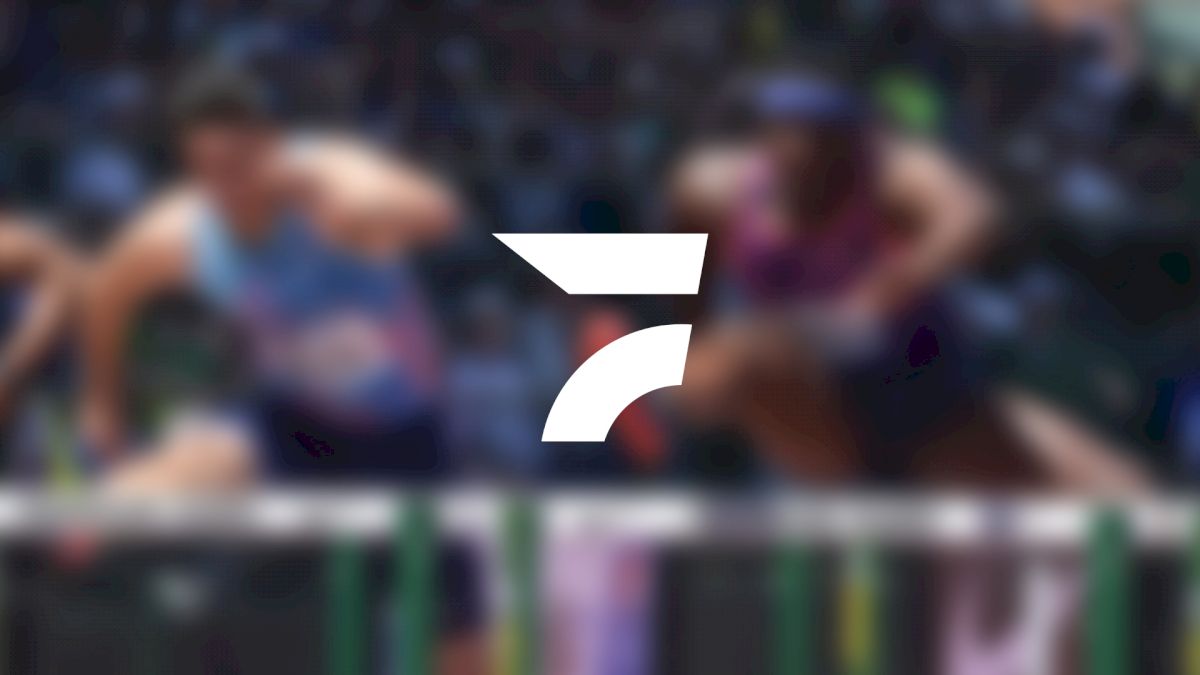

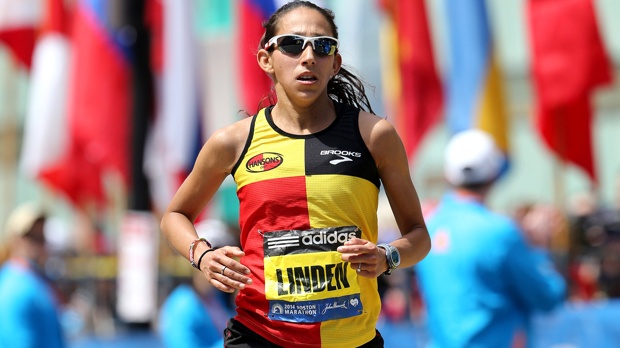
ROCHESTER HILLS, Mich. –– Since making her marathon debut in 2007, Desiree Linden has shaved nearly 22 minutes off her personal-best time and has established herself as one of America’s top female marathon runners. We paid the 2012 Olympian a visit as she prepares for her fifth Boston Marathon and talked about her training and goals, both domestically and abroad, and her goals for the race, her recent tune-up at the NYC Half, her long-range planning for 2015 and beyond, as well as her life as a professional runner.
What are the pros and cons to training for a spring marathon in Michigan?
Obviously, a con that I will start with is the weather. It’s kind of tricky to get through the winter and the snow and ice particularly. The temperatures are not so bad, but when you get an icy day you kind of risk injury with a slip or a fall. The pro is that it really makes you tough. You have to be smart and listen to your body. If it’s a bad day out, you just take it a little bit easier. It toughens you up mentally just getting through a winter here.
How does training in Stony Creek Metro Park prepare you for the rigors of Boston?
This is a place where we do a lot of our workouts and we are quite familiar with it. It rolls pretty good. It’s not the easiest course but there are sections where you know you are going to get time and bank it. It’s a good, basic course for us to train on. Boston-specific, this course is nothing special. We work on that ahead of time with the downhills and stuff like that. This is about running on a pretty tough course on tired legs.
You have trained a couple of years now in Kenya over the winter. What has been the biggest advantage of that experience?
The best part of the experience itself if you get to be inside this great running culture and you get excited about running. You get to see all of these Africans out there working hard every day. It’s kind of a friendly reminder that that’s what you’re up against when you get home. When you feel like slacking off, people over there are going out and running hard. That is really great. Then, obviously, there is the altitude and the really great weather. The terrain there is really similar to Boston. Getting on dirt roads for a couple of weeks is not bad, either.
What is the most memorable workout you have ever done in Kenya?
How often would you make this particular run in Kenya?
Our long runs would basically build up each week that I was out there. I think I started out around 12 miles then went 16, 18, and up to 20 before I left. So basically, we’d do that run once a week.
You spent some time this winter also training in Orlando. What type of training did you do there?
The weather in Florida is definitely the special thing. It’s what we go for. Again, it’s just to get away and get some good footing. But I think when you are doing marathon-specific stuff you really want to lock into the pace and get comfortable running at race pace. That’s a little bit difficult to do when you have snow on the ground or really windy, cold conditions. Down there, we can get locked into marathon pace and get really comfortable.
Where is your favorite place to train?
My favorite place to train is definitely here in Michigan. It’s nice to go away and just focus on the task but there is no place like home. I know that is cheesy but I love training at Stony. I know exactly where I am at and what I need to be doing to get better. To have the group here is awesome. It’s, hands-down, my favorite.
What is different or unique about your training for the Boston Marathon than maybe your training for other marathons?
How does your training for Boston today differ from your training the first time that you ran the race?
The first time that I ran Boston was actually in 2007. That was my debut marathon, so training is pretty-significantly different pace wise, effort wise. I think the mentality of it is much different. In 2007, I was trying to get an Olympic Trials qualifier and basically keep myself in the sport. Now, we’re looking at the front group thinking, ‘How can we win? How can we put ourselves into contention?’ The mentality is totally different and it’s a lot of fun doing this part.
Can you talk about the NYC Half, how that race unfolded for you?
It was definitely not my greatest day. It was pretty rough. Again, we were going in on pretty-heavily-marathon-trained legs. You can go out there and some days you feel really, really strong when you’re in the middle of marathon training and it all just clicks for you. That was not the day for me. I felt pretty beat up from the get go. I was able to lock into a solid pace but there was just no picking it up. I would focus on one mile and say, ‘Ok, this is where I am going to get back on a good race pace,’ and it’s the same. Then you go, ‘Okay, the next one. This is the one where I am going to get back on pace,’ and then it’s exactly the same. It was hard to just find that next gear, which is completely understandable given the volume of work we are doing right now.
Given the volume of work you are doing and that you were racing on tired legs, what was your goal heading into that race?
Definitely to be competitive. I would have loved to have been under 1:11. That would have been nice. It kind of separates you from the top group but means you are still contending for a Top-5 spot. That would have been a good day. But even going in with dead legs and running 1:12:30 is not the worse thing in the world, I guess. I walked away with the idea, ‘Okay, if this is the second half of a marathon and you’re 1:12:30 in the second half in Boston, you’re still having a pretty-solid day.’
What did you learn from your experience there that you are carrying into your training these last couple of weeks before Boston?
It’s hard to say if it says too much about where I am at because I think I am actually more fit than what I showed on that day. Hopefully it will keep me motivated to not take the foot off the gas right now because I am tired and just push through. I think I have bounced back really well from that race and have done some good work since then. I’ve taken those recovery days really easy which is important.
What is your goal for the Boston Marathon?
It is hard to say right now because we still have a lot of the hard, quality work to do. Running 5:25 pace for a marathon workout here and hopefully I can get the conditions where I can go out and try to run that on race day. I think that puts you in the hunt and makes you competitive. If it’s a day like last year where five women go under 2:21, we’ll see what happens. But this gives me a great chance to be competitive late in the race. If I can get to 20 [miles] efficiently at a real solid pace and then compete in, that would be nice.
Would you say that you are all the way back now from the femoral stress fracture you had in 2012?
How much have you allowed yourself to start thinking about 2016 yet?
It’s in the back of my mind. I think immediately after 2012 it was, ‘Get healthy,’ and then it turned to, ‘How can you make that team in 2016 again?’ Every little thing that we have put in has been a steppingstone in that direction but they’re all equally important at the time. I have to focus on this right now and then this and this at the right time. Right now, all eyes are on Boston but it’s certainly in the back of my mind. I think this will be a good lead-up to 2016?
Can you compare yourself as a runner at this point, less than a year out from the Trials, to the runner you were at this same juncture four years ago?
I think I am a little smarter right now. I know to take the recovery days easier. I know when I need to press and I know when I need to take care of the little things in recovering. I am still just as competitive. I think I’ve been a little bit smarter about that as well. I do feel like fitness wise and competitively it is aligning pretty similarly to the last four years. Just like in 2011, hopefully I will go into Boston and have a good one there and then be set up for the Trials and the Games.
How badly do you want to get back to the Olympics and get a chance to show the world what you can do on that stage when healthy?
That’s definitely something that keeps me motivated. Honestly, when you are struggling and injured and trying to come back that’s kind of the thing that’s sitting out there. This is what you’re trying to get back for. Take your time. Be ready right now. In getting ready, having those four years was nice to be able to break things down step by step. I am looking forward to taking the 2016 Trials and hopefully making that team. I want to justify standing on the line and having that opportunity because I feel like it’s a great learning experience.
What does the rest of post-Boston 2015 look like for you?
When you say that you have to get back on the track, will it be in the 5000m, the 10,000m, and is making the World Championships team a goal?
I will focus on both the 5K and 10K. I don’t have a qualifier for USAs even, so one step at a time there. But I think I can turn around and get that qualifier quick. Hopefully I can qualify and be competitive at USAs. Being in the hunt to make a team would be awesome. If not, I will look at some later-season European meets and look to go fast.
Have you targeted a meet to try and get that qualifier?
No. Right now, my focus is all on Boston. After that, I’ll scramble.
What is your fondest race memory?
I’m in the Boston mode right now so I am going to have to go with 2007, crossing the finish line in Boston, my debut marathon. There was nothing super-special about it to the outsider but it’s exciting becoming a marathoner and having that moment. I honestly fell in love with the event there. I believed that I could be a contender, even just in the United States, in that event which was exciting and something that kept me in the sport. I didn’t necessarily think I had the chops for the track at that point so [the marathon] was a new, exciting event where I could say, ‘Okay, I can focus on this for the next few years.’
Do you have a race that you would like to have back or second-guess your approach to a particular race?
Well, I think the Olympics would be great to have back so I could redo that. But the last homestretch in Boston in 2011 is one I would like back too. You could probably redo that five or 10 times and have totally different outcomes each time. Those are the moments that are really exciting in our sport, when you’re competing and contending and trying to win. That’s a lot of fun.
What would constitute your perfect post-race meal?
Tough call. In New York it’s definitely pizza, but a good burger is generally the way to go, I think. A nice, thick burger. And I definitely need a beer.
This is pretty pathetic. So I have all of these hobbies. I like music. I like to go get coffee. I like to play guitar. They’re all hobbies, but they all sort of mask the fact that what I really like to do is be home and sit on my couch.
Can you describe your favorite and least favorite marathon workouts?
My favorite would be 2 x 6-miles with 10 minutes rest in between. I think it’s really telling about your fitness but usually happens in the segment where you’re really strong. You’re kind of on those dead legs still but you get that strong day as well. When you hit that second one and you’re feeling really good, it’s a big boost of confidence late in the segment.
My least favorite might be 5 x 2-miles. I struggle with that one. I can usually hit the first two and then I usually think about how much is left instead of focusing on each one, which is a good mental tool and actually something I have to work on.
If you could give one piece of advice to an aspiring marathon runner what would that be?
Be patient. Be prepared to be really patient because it’s a process. You might not hit it out of the park the first time but you’re definitely going to have all of that work behind you and it will pay off somewhere down the line. Even on race day, it’s the same type of advice. When you’re running 26.2 miles, you don’t need to race the first 5K. Be patient and race when it matters.
If you could have dinner with three track or marathon runners, living or dead, who would you dine with and why?
I think I would go with Joanie (Joan Benoit Samuelsson) because she’s a legend, I would definitely want Deena [Kastor] because she’ll pick great wine, and my third would probably be Greg Meyer because he won Boston and is from Michigan. I’ve got to have some local flavor.
Related Content
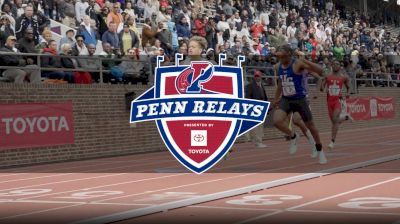 Penn Relays 2024 Preview Hype
Penn Relays 2024 Preview HypeApr 23, 2024
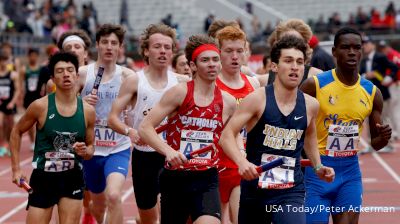 Qualifying Standards For Penn Relays 2024: Here's What To Know
Qualifying Standards For Penn Relays 2024: Here's What To KnowApr 23, 2024
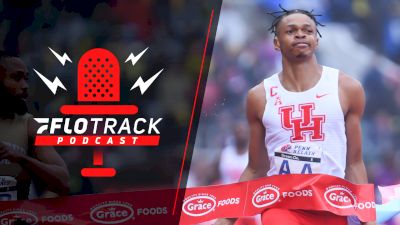 Diamond League Xiamen Reactions, Plus Previewing Penn Relays | The FloTrack Podcast (Ep. 663)
Diamond League Xiamen Reactions, Plus Previewing Penn Relays | The FloTrack Podcast (Ep. 663)Apr 23, 2024
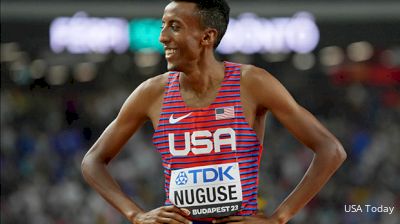 Five Big Storylines To Watch Out For Heading Into The Penn Relays
Five Big Storylines To Watch Out For Heading Into The Penn RelaysApr 23, 2024
 How to Watch: FloTrack Podcast Live from Penn Relays | Track and Field
How to Watch: FloTrack Podcast Live from Penn Relays | Track and FieldApr 23, 2024
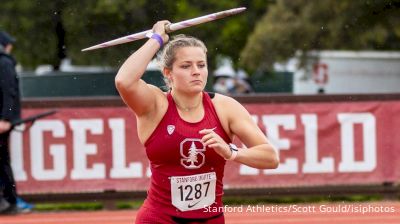 Payton Jordan Invitational Schedule 2024: What To Know
Payton Jordan Invitational Schedule 2024: What To KnowApr 23, 2024
 How to Watch: 2024 Gulf South Outdoor Track & Field Championship | Track and Field
How to Watch: 2024 Gulf South Outdoor Track & Field Championship | Track and FieldApr 22, 2024
 Here's Why You Don't Want To Miss The Bryan Clay Invitational
Here's Why You Don't Want To Miss The Bryan Clay InvitationalApr 22, 2024
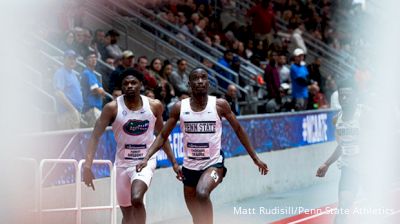 Cheickna Traore Is Up Next. The Former D3 Star Has Elite NCAA Potential
Cheickna Traore Is Up Next. The Former D3 Star Has Elite NCAA PotentialApr 22, 2024